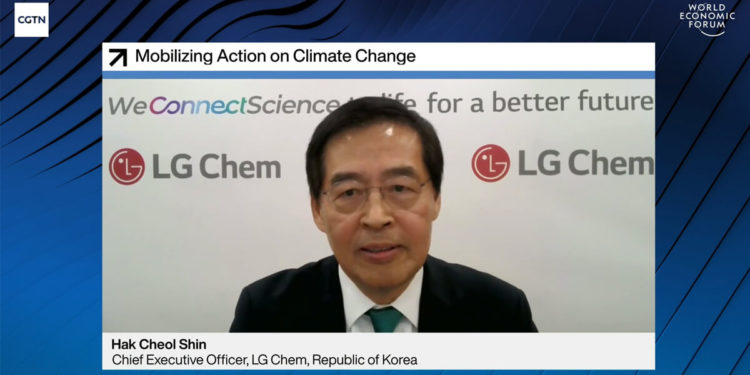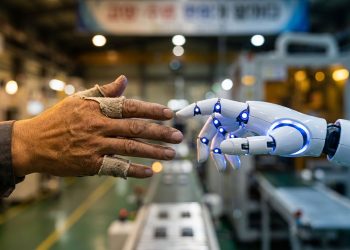The largest South Korean chemical company LG Chem announced its action plans in response to climate change. At the World Economic Forum (WEF), LG Chem Vice Chairman and CEO Shin Hak-cheol shared the company’s carbon reduction strategies. Under the theme “Mobilizing Action on Climate Change,” Shin gave a speech on ways to address issues on climate change. Among the panel members for WEF, CEO Shin Hak-cheol is the only Korean official.
“Our 2050 goal calls for capping the 2050 emission level at the 2019 level or a reduction of 30 million tons of CO2 on an annual basis by 2050. To put this into perspective, 30 million tons of CO2 is equivalent to the amount of CO2 generated from 12.5 million vehicles each year or can be offset by 220 million fully grown trees,” said Shin.
LG Chem introduced the three strategies for their carbon neutrality plan, the 2050 Carbon Neutral Growth. The first strategy is Reduce, in which the company will employ carbon reduction using Carbon Capture Utilization Storage (CCUS) technologies. Avoid is the second strategy, in which LG Chem will indirectly reduce their carbon discharge by utilizing renewable energy. The last strategy is Compensate, wherein the company will neutralize carbon emissions through foresting and other climate change responses. Additionally, LG Chem provided the strategies with specific milestones by business, geography, and each plant site.
Promoting the reduction of carbon emissions
“We knew from the beginning that the only way to make this work is to work backwards from our 2050 goal and find the way to get there, using the right-to-left approach, with a clear leadership commitment and accountability attached to each milestone,” continued LG Chem’s chief executive.
Aside from the 2050 Carbon Neutral Growth, LG Chem promoted the RE100, another tactic to curb carbon emissions. RE100 is an initiative aiming to produce 100% renewable energy and commercialize carbon-reducing and bio-based technologies. Shin also encouraged world industry leaders to take collective action and respond accordingly to climate change issues.
“Leadership commitment at the top is the only way to make this happen. So I propose a three-step recommendation for all CEOs and industry leaders around the world and that is to commit, operationalize, and engage,” added Shin. “The magnitude of technical challenge is so big that no one company can perfect this technology alone. Hence the need for essential industry partnership and collaboration.”







